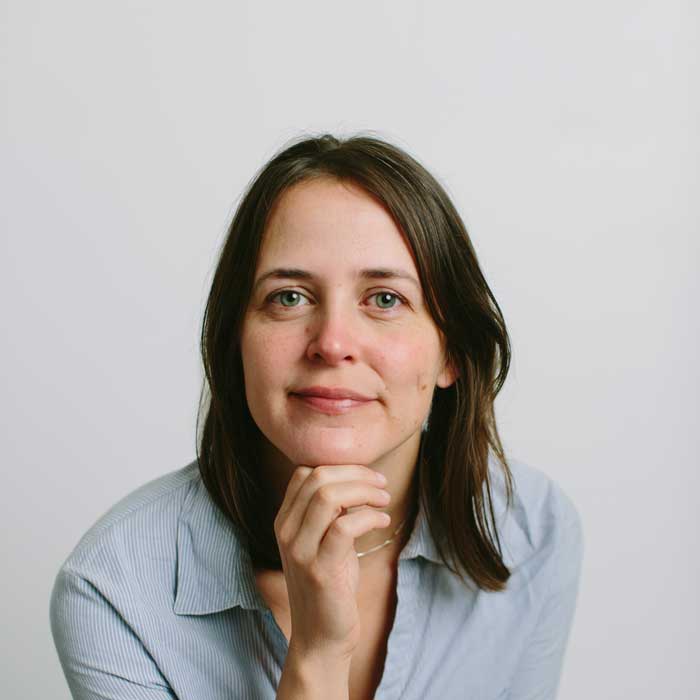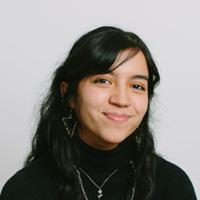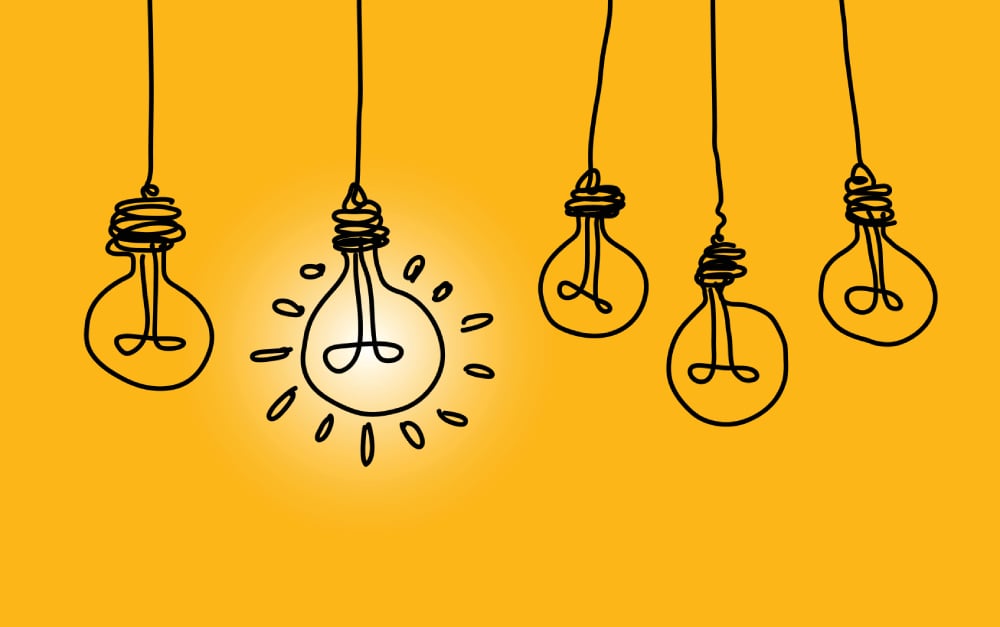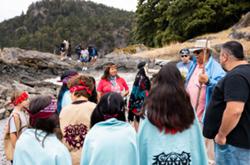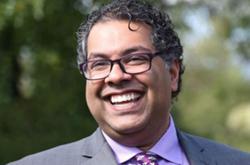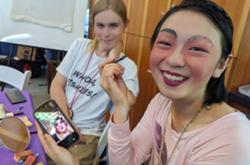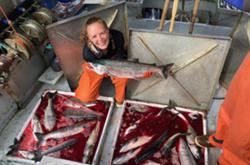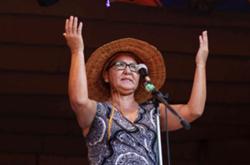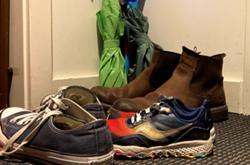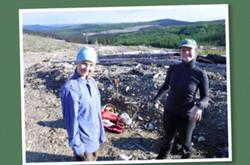A year of expectations upended by the global pandemic invited a giant rethink. Here are 20 big ideas that showed up in the pages of The Tyee during 2020.
To battle the climate crisis, learn from the Second World War
To defeat Hitler, more than one million young Canadians enlisted for military service. Youth are again key to the existential struggle of our time. In a Tyee piece keying off his 2020 book A Good War: Mobilizing Canada for the Climate Emergency, Seth Klein wrote that we are experiencing a level of societal mobilization and a needed pivoting of government priorities not seen since the Second World War. Acknowledge the energy, ideas and strength young people are contributing to the effort, Klein proposes, by supporting their leadership in climate mobilization, creating a Youth Climate Corps, and lowering the voting age.
Reinvent long-term care
The devastating effect COVID-19 had on long-term care residents and the facilities’ reactive lockdowns prompted calls for a range of reforms. They include doing away with for-profit models, moving to co-op models and re-visiting the ethics of preventing visits by relatives. “If this goes on for a year, what’s the ethical decision on ‘Why am I keeping them safe?’ I’m keeping them safe from this virus, but they’re going to die while I’m keeping them safe in bubble wrap,” painfully mused one head of a care home.
Decolonization begins with language
This year saw a lot of newsrooms coming to terms with how colonialism is reflected in their pages. The Tyee’s copy chief and head of the Tyee Style Guide Tara Campbell wrote a thoughtful and widely read examination of how “relaying other people’s stories and perspectives is a hefty responsibility.” She notes, “Our word choice and what we see to be appropriate is entrenched in colonial narratives, and sometimes that’s not salient to us without some scrutiny.” While some publications this year made the jump to capitalize the B in “Black” and the I in “Indigenous,” Campbell writes: “Sometimes the issues are more complex than word choice. It’s also about process.”
A ‘renaissance’ of psychedelic psychotherapy
As Curt Petrovich tweeted about his Tyee article, a “renaissance” is underway for drugs that can change the lives (and deaths) of many. In October, the B.C. College of Physicians and Surgeons reversed its position that barred psychiatrists from using ketamine to treat severe mood disorders like depression and PTSD. Then, earlier this month, Health Canada expanded its list of individuals who are legally allowed to possess and consume psilocybin-containing mushrooms by granting 16 health-care professionals exemptions.
Advocacy groups like Therapsil are pushing the government toward granting more exemptions, faster.
Best practices for toppling racist monuments
Smearing red paint on statues of colonial oppressors and beheading them is certainly satisfying to many, but there are more ways than one to remove such monuments and lend meaning to the process. The City of Victoria is a case in point, reported Emma Renaerts in a piece The Tyee co-published with the site Reasons to Be Cheerful. “Through a conversation with the chiefs and councils of the two nations, the city realized if they were going to do the work of decolonization, they needed to find a more Indigenous method for working together.”
Crises demand ‘culturally specific education.’ Use PICO
The health and safety regulations from the government aren’t being effectively communicated to the Sikh community, Sukhmeet Sachal found. So Sachal turned to the PICO process. P is the population, which in this case was Sikhs. I is the intervention, which is culturally specific education. C is comparison, to determine if the intervention is working, and O is the outcome, which Sachal hoped would be more adherence to public health guidelines. This helped Sachal prioritize community and culturally specific teachings when it came to pandemic safety.
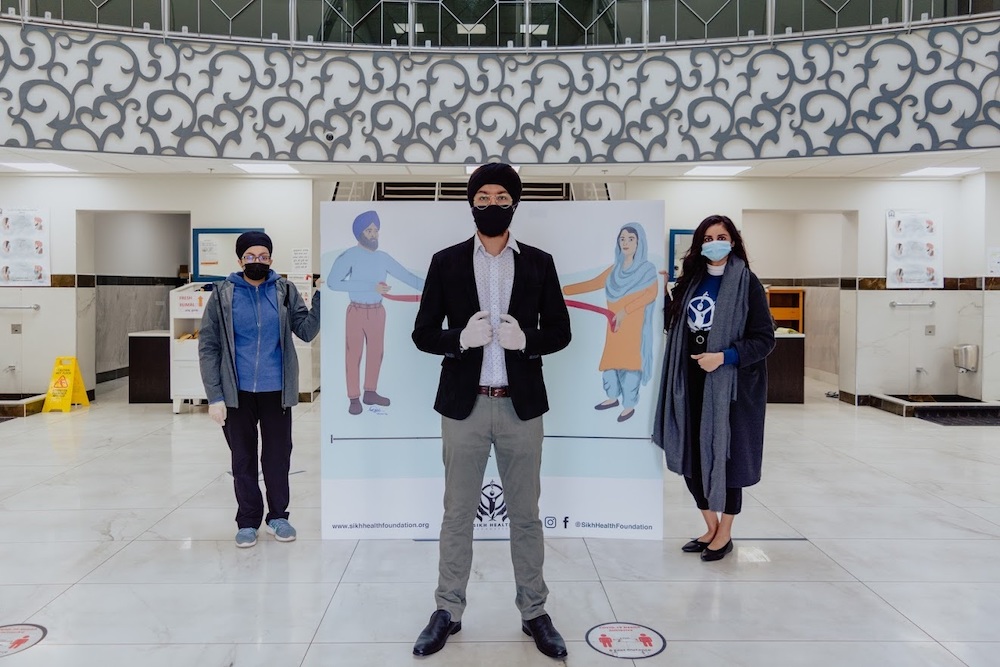
A powerful lesson that governments can learn from the COVID crisis is to fashion policies — and outreach for implementation — by considering lifestyles and needs outside assumed white norms. When public health guidelines only address the majority, minorities are left to their own devices — or left to nothing at all.
UNDRIP comes to Canada, but read the fine print
This year Canada’s government tabled Bill C-15, which proposed to accept the United Nations Declaration on the Rights of Indigenous Peoples, or UNDRIP, into federal law. But a close reading of Trudeau government efforts and the legislation prompted two Indigenous experts to be skeptical.
Judith Sayers noted the bill doesn’t acknowledge the term “racism,” was not the result of a fulsome consultation with Indigenous Peoples and is given too long — three years — to be implemented. For similar reasons, Bruce McIvor considers Bill C-15 to be more aspirational than actionable.
It took a pandemic to listen to our bodies
We don’t even notice it when we’re holding our pee. That’s how good we are at not listening to our own bodies. But as Dorothy Woodend points out, “a radical reassessment of this relationship has come about. All it took was a global pandemic.” Nowadays, we converse with our bodies like the cranky toddlers they are. “I want to lie down. I want a glass of juice. I want to go outside.” This heals us, and preps us, just a bit more for the scarier stuff.
Transparency saves lives
Whether we like it or not, points out Tyee contributing editor Crawford Kilian, we’re a bunch of statistics right now. So give it to us straighter in 2021, Dr. Bonnie Henry. Daily updates, focused case and death counts, race and gender tracking — the works, Kilian urged.
Epidemiology and law expert Amir Attaran blasted the federal government similarly. He “particularly criticized Canada for being one of the last democratic nations to release portions of its disease modelling projections that served as the basis for a national lockdown. This important model will also set the groundwork for a return to working life,” wrote Andrew Nikiforuk.
In July, B.C. and Vancouver finally heeded calls from activists to begin gathering race-based data related to the pandemic and other health outcomes, as Moira Wyton reported. “Racialized communities have known and continue to know what the impacts of poverty, of discrimination, health care and all of these things are on us, but that’s framed often as anecdotal evidence,” said community activist Amal Rana. “Sadly, the way the system works is that we have to have the data to back it up in order to get change to the system.”
Facebook, reveal your true face
Whether and how to regulate, tax and hold Facebook accountable is being debated in courts and other high places in the United States, Europe and Canada. This may be the year Facebook finally has to come clean on whether it considers itself a social media site, a news site or a something else entirely. Facebook, for now, eludes such definition as The Tyee’s Bryan Carney wrote. Until we know, the digital giant will continue to dominate our democratic discourse while masquerading as a free-for-all bulletin board.
Less divisive politics for the digital age? Check out Taiwan
Social media can seem to be tearing apart North American society. But in Taiwan, “civic hackers” got government to listen and fostered consensus. The hackers’ answer, reported Carl Miller, was called vTaiwan. “The platform invites citizens into an online space for debate that politicians listen to and take into account when casting their votes. Government would start a new vTaiwan process on a political question it was deliberating, and Taiwanese people from across the full spectrum of opinion would join one another to discuss it online.”
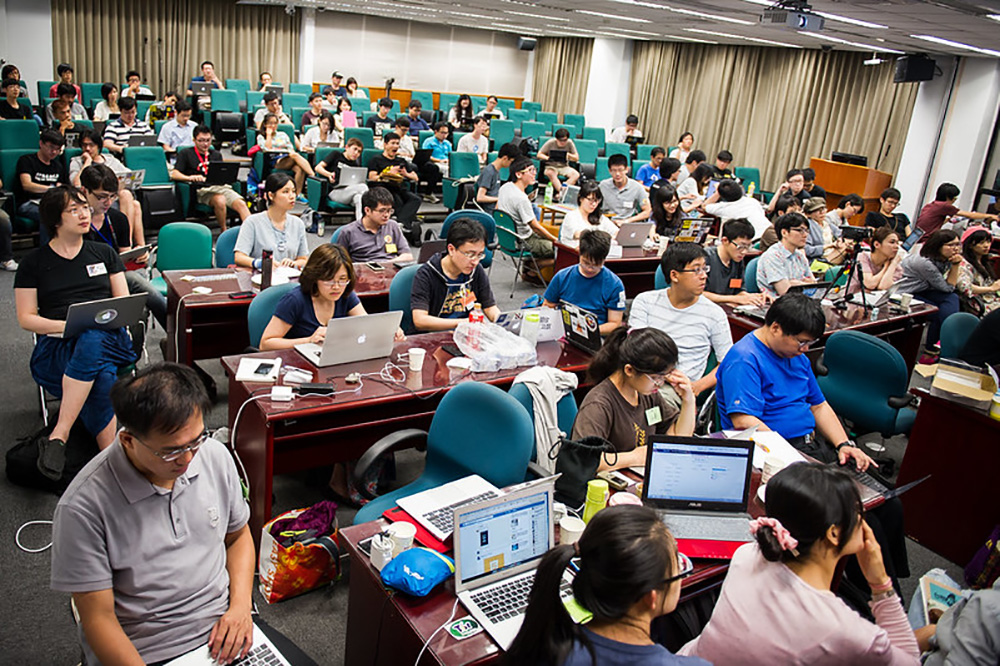
But this online space is “exactly the opposite of a social media platform that encourages strife.” The platform Polis, designed in Seattle, “drew a map showing all the different knots of agreement and dissent as they emerged. As people expressed their views, rather than serving up the comments that were the most divisive, it gave the most visibility to those finding consensus.” No more trolls, flames largely quenched. As one participant said: “People spend far more time discovering their commonalities rather than going down a rabbit hole.”
‘Green stimulus’ for a post-pandemic economy
When the B.C. government assembled a task force to plan for the province’s pandemic recovery, labour and business representatives were invited, but no one from the environmental sector. “People with perspective on rebuilding a resilient and low-carbon economy should be on the task force to ensure those goals are at the core of decisions,” said Karen Tam Wu, B.C. director of the Pembina Institute energy think tank and a member of the Climate Solutions Council. As The Tyee’s Andrew MacLeod reported, Pembina has called for “green stimulus” spending.
Also in The Tyee, Matt Price argued that any fight for climate action must now be tied to the pandemic recovery, and laid out suggestions for a plan best “developed in conjunction with First Nations, workers and other governments across the country.”
Social inequality makes us sick
The pandemic highlighted what The Tyee’s Andrew MacLeod well-documented in his book All Together Healthy — that poor health is powerfully tied to poverty and discrimination, despite those who say it’s merely a matter of personal choice — deciding to eat right and exercise. This year, Crawford Kilian returned to this theme in citing a report by Canada’s top doctor Theresa Tam. “Dr. Tam makes it clear that these differences are not really inborn, dooming us to illness or death. They are the result of policy.”
Do you live in ‘Salmon Nation’?
Salmon Nation is the name of a new project given to the bioregion stretching from Alaska down to northern California and from the coastline across to the mountainous watersheds that are essential to the survival of Pacific salmon. The iconic fish has nourished ecosystems, and humans, for millennia. Regular Tyee contributor Ian Gill, a Salmon Nation co-founder, is helping to create a network that connects “Ravens” — people engaged, one way or another, in fashioning the region’s next, sustainable economy. Some of those best practices were shared and showcased in Salmon Nation’s first Festival of What Works launched online here at The Tyee.
‘A Green New Deal for housing’
A five-part series by Geoff Dembicki identified linkages between solving the climate crisis and dealing with out-of-control housing prices. Luxury towers built to the highest eco-standards aren’t the solution, he found — instead, denser and affordable neighbourhoods that lessen the need for car travel for people of all incomes is key. Incentives are woven into the proposed U.S. Green New Deal, and Canadians are pushing for similar measures.
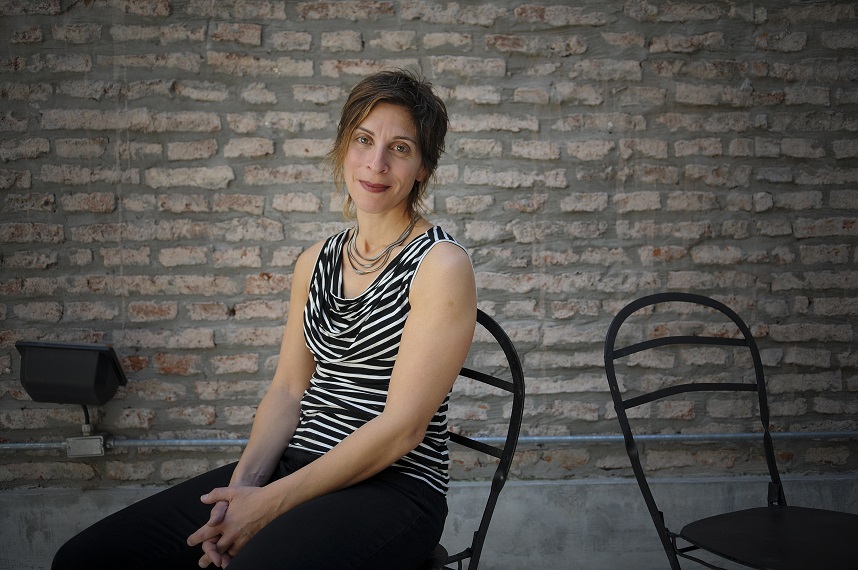
‘Safe supply’ to counter an overdose catastrophe
The pandemic worsened B.C.’s overdose crisis, but also triggered a bold harm reduction experiment. As Judith Lavoie reported, “the already-poisoned drug supply becomes increasingly toxic and expensive as borders close and people self-isolate. With the supply shortfall, more dangerous basement concoctions are being sold on the street and there is concern that those searching for drugs are at risk of both contracting and spreading COVID-19.”
The feds responded by giving health professionals more leeway to prescribe controlled substances so that users would not have to buy from illicit dealers, and B.C. then took steps to make that happen. Advocates who’d long called for a “safe supply” welcomed the changes but wanted a faster pace. In September, the program saw a major expansion.
‘Go for Zero’ is Canada’s pandemic path not taken
Australia, New Zealand and other nations have done it, but not Canada. Going for zero spread is an approach to tackling COVID-19 that starts with believing it’s possible, and then marshals aggressive testing, tracing, masks and other interventions to quash the virus, explained Andrew Nikiforuk. If carried out fast and well, it need not mean lockdowns, as Taiwan proved. A number of Canadian experts argue our nation should go for zero. The think tank Global Canada even issued a report hailing Atlantic Canada as a successful example.
Why so much discord? ‘Elite overproduction’
Historian Peter Turchin, a Russian-born scientist who uses a math technique called cliodynamics to map cycles of conflict in world history, confirms the U.S. is a badly riven society. He claims it’s to be expected because the country has bred too many elites who now are battling over the limited spoils of status, wealth and power they believe they are due. The Tyee’s Crawford Kilian reviewed Turchin’s book and concluded that if he “is right, the U.S. and Canada are in for a very, very rough decade.”
Andrew Nikiforuk, too, resonated to Turchin’s views here and here, and postulated the pandemic might hasten the end of a 300-year “secular cycle” that made the U.S. mighty.
Draw on your secret power: ‘eyedness’
The pandemic is an invitation to while away time alone by drawing. But which one of your eyes is calling the shots, asks author and artist Betty Edwards. Her new book, Drawing on the Dominant Eye: Decoding the Way We Perceive, Create and Learn, sparked an essay by Dorothy Woodend, who wrote, “The concept of a dominant eye, ‘eyedness’ for short, was news to me.... The right eye, connected to the left hemisphere of the brain with its emphasis on words, logic and reason, is bright, inquisitive and fixed intently on whatever its gaze lands upon. The left eye, by contrast, is dreamy, less assertive and wired into the right brain with its nonverbal, intuitive approach to the world.”
Edwards believes, “The dominant and subdominant eyes reveal the mind.” For Woodend, the act of drawing is “a different way of understanding the world, a slow seeing as opposed to the quick naming, and it’s fundamentally about empathy.”
A ‘universal basic income’ gains traction
The BC Greens platform this fall included a basic income for the most vulnerable. Party leader Sonia Furstenau said evidence showed it “would be cheaper overall for society than paying the many costs related to poverty,” The Tyee reported. The basic income concept seems a lot less far-fetched now that the federal government is cutting cheques to tide people over during the pandemic’s walloping of the economy. In B.C., the NDP government is studying the concept. Here’s an idea: Watch this handy video explainer produced by The Tyee.
Dear Tyee readers: comments are closed until Jan. 4 to give our moderators a much-needed holiday break. Best wishes to you and yours. ![]()
Read more: Media
